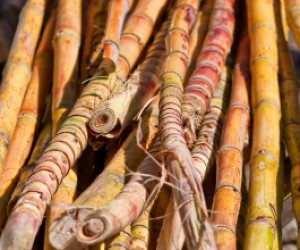The South African government recently announced that the blending of biofuels in mineral fuels will become mandatory in the future. The mandatory blending of biofuels has been gazetted at minimum concentrations of 5% for biodiesel and 2% to 10% for bio-ethanol, and the country’s biofuels strategy allows the use of grain sorghum, sugar cane and sugar beet for bio-ethanol production, and sunflower, canola and soya beans for biodiesel production.
This has exciting possibilities for the local biofuels market, says Professor Emile van Zyl, Stellenbosch University senior chair of energy research in biofuels. He points out that the mandatory blending of biofuels with petrol and diesel could lead to the creation of a vibrant biofuels market which, in turn, could kick-start a bioenergy industry in South Africa.
Sugar cane is one of the crops that the South African Biofuels Strategy has identified for ethanol production because of its high productivity per unit area of land compared to other crops. It also contains high amounts of sugar (the sweet juice extracted from sugar cane), which can be fermented directly by yeast to produce ethanol.










